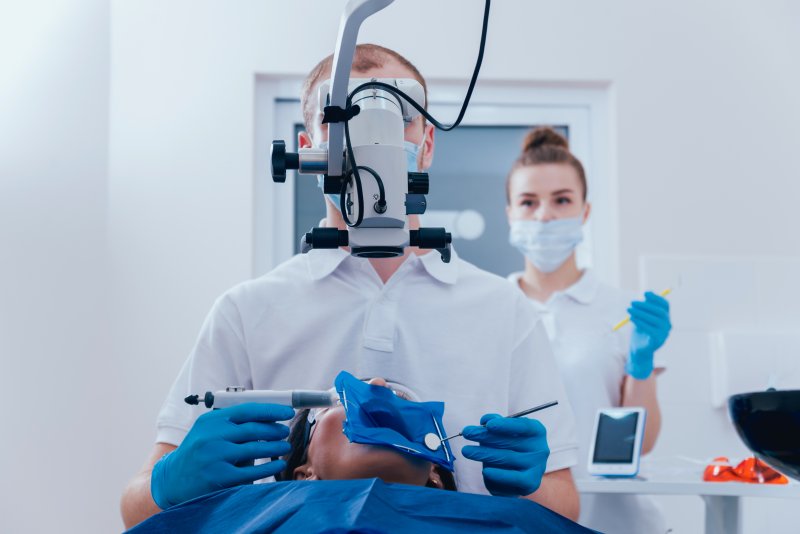
A root canal may not be a procedure you want to have, but it is highly effective when it comes to treating a severely decayed tooth that is putting the rest of your oral and overall health at risk. While you may already know what you can expect from the procedure itself, you may be unaware of what the time spent at home will be like. Keep reading to learn more about how you can ensure a successful recovery as well as when you should see your dentist for additional help.
After the Procedure: What to Expect the Day Of
Once your root canal is complete, it will take time for the local anesthesia to wear off. While you may feel fine returning to work or school, you can return home and get rest, especially if you receive sedation.
As the anesthesia wears off, you can expect there to be some discomfort. It’s best to have any prescription medication filled before the day of your procedure so that you have access to it when you need it. You can also take an over-the-counter pain reliever if you do not receive any prescription pain medicine.
In the following hours, you’ll want to avoid eating or drinking anything until the numbness from the anesthesia fully wears off. Once it does, you’ll need to stick to eating soft foods, as anything hard can place unnecessary pressure on the treatment area.
You will want to make sure that you continue to clean your teeth (and floss), even on the day of your procedure, as you don’t want bacteria aggravating the treated tooth.
The Days Following the Procedure: After the First 24 Hours
In the days and weeks following your root canal, you’ll want to continue eating soft foods and taking over-the-counter pain relievers to minimize any discomfort. You can expect that the discomfort will dissipate within a few days, but if it does not, you’ll want to see your dentist.
You’ll need to avoid chewing on the side of your mouth where the procedure occurred so that the tooth can fully heal.
Post-Procedural Complications: When to See a Dentist
Although it’s not common for patients to experience complications after a root canal, there are instances when additional care by a dentist is required. Should you notice any of these issues, make sure to call and schedule an appointment:
- You develop a fever
- You struggle with an uneven bite
- Pain does not decrease but instead increases over time
- The temporary filling put in place falls out
- You experience swelling
- There is a bad taste in your mouth
- You are struggling to breathe or experiencing excessive itching
Although it can be unnerving to move forward with a root canal, it’s important to remember that this type of procedure has a high success rate. By keeping these post-treatment tips in mind, you can expect a successful recovery and better oral health in the future.
About the Practice
Westgate Dental Care consists of a team of highly qualified dental experts who understand the intricacies of dental care and its effects on the body. Offering root canal treatment to individuals with severely decayed teeth, we can improve a person’s oral and overall health safely and effectively using high-tech devices and techniques. If you need root canal treatment but are unsure about what to expect after the procedure is complete, visit our website or call us at (847) 908-3684.
